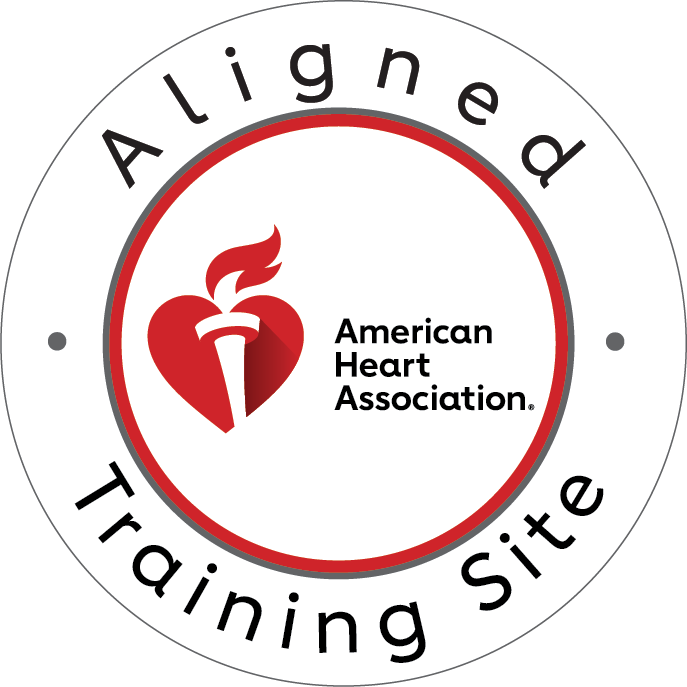I. Introduction
In today’s dynamic and competitive job market, the pursuit of career advancement has become paramount for professionals across various industries. Whether you’re a healthcare provider, educator, or childcare specialist, standing out from the crowd and advancing in your career often requires more than just traditional qualifications. It demands a commitment to continuous learning, skill development, and the acquisition of specialized certifications that demonstrate your expertise and dedication to your field.
A. Significance of Career Advancement
Career advancement isn’t just about climbing the corporate ladder or earning a higher salary (though those are certainly appealing incentives). It’s about personal growth, professional fulfillment, and achieving your full potential in your chosen career path. Advancing in your career allows you to take on more challenging roles, make a greater impact in your industry, and contribute meaningfully to your organization’s success.
II. Understanding PALS Certification
Now that we’ve established the importance of career advancement and introduced the concept of PALS certification, it’s time to delve deeper into what PALS certification entails and why it holds such significance in professional development.
A. Definition and Purpose of PALS Certification
Pediatric Advanced Life Support (PALS) certification is a specialized training program designed to equip healthcare professionals and other individuals with the knowledge and skills needed to effectively manage pediatric emergencies. Developed by the American Heart Association (AHA), PALS certification emphasizes the assessment, recognition, and treatment of critically ill or injured infants and children.
The primary goal of PALS certification is to improve outcomes for pediatric patients experiencing life-threatening emergencies, such as cardiac arrest, respiratory failure, or severe trauma. By providing healthcare providers and other professionals with standardized training in pediatric resuscitation techniques, PALS certification aims to ensure that patients receive prompt and effective care when every second counts.
B. Overview of Skills and Knowledge Covered in PALS Training
PALS training covers a wide range of topics related to pediatric emergency care, including:
- Recognition and management of respiratory distress and failure
- Assessment and treatment of shock
- Cardiac arrest management, including high-quality CPR and defibrillation
- Effective communication and teamwork in the pediatric resuscitation team
- Pharmacology, including appropriate medication dosages and administration routes for pediatric patients
- Integration of advanced life support interventions, such as advanced airway management and intraosseous access
PALS certification courses typically include a combination of didactic instruction, hands-on skills practice, and simulated pediatric emergency scenarios to ensure that participants develop both the knowledge and confidence to respond to real-life emergencies effectively.
C. Importance of PALS Certification Across Various Professional Fields
While PALS certification is often associated with healthcare professionals working in emergency medicine or critical care settings, its relevance extends far beyond the walls of the hospital. In today’s interconnected world, where emergencies can arise anywhere and at any time, individuals in a wide range of professions can benefit from PALS certification.
For healthcare professionals, PALS certification is essential for those who care for pediatric patients in emergency departments, pediatric intensive care units, or pre-hospital settings. However, educators, childcare providers, camp counselors, lifeguards, and sports coaches can also benefit from PALS certification, as they may encounter pediatric emergencies in their respective roles.
III. Elevating Your Professional Profile with PALS Certification
Having understood the fundamentals of PALS certification, it’s crucial to explore how obtaining this certification can significantly impact your professional trajectory and set you apart in your field.
A. Enhanced Skill Set
One of the primary benefits of PALS certification is the acquisition of advanced skills and knowledge in pediatric emergency care. Participants undergo rigorous training that prepares them to assess and manage a wide range of critical situations involving infants and children. From recognizing signs of respiratory distress to administering life-saving interventions during cardiac arrest, PALS certification equips individuals with the confidence and competence to respond effectively when seconds count.
Moreover, PALS training emphasizes critical thinking and decision-making skills, enabling professionals to quickly assess a pediatric patient’s condition, prioritize interventions, and adapt to rapidly evolving situations. These problem-solving abilities are invaluable not only in emergency scenarios but also in everyday clinical practice or other professional settings where quick thinking and decisive action are required.
B. Increased Marketability
In today’s competitive job market, employers are increasingly seeking candidates with specialized skills and certifications that demonstrate their commitment to excellence and ongoing professional development. PALS certification serves as a powerful differentiator on resumes and job applications, signaling to prospective employers that you possess the expertise and readiness to handle pediatric emergencies effectively.
For healthcare professionals, holding PALS certification can be a prerequisite for certain positions or a significant factor in the hiring process, especially in specialties where the care of pediatric patients is central, such as pediatrics, emergency medicine, or intensive care. However, even in non-medical fields, such as education or childcare, PALS certification can make you a more attractive candidate for roles that involve caring for or supervising children.
C. Expanded Career Opportunities
Beyond its role in securing employment, PALS certification can also open doors to new career opportunities and advancement pathways. Professionals who hold PALS certification may be eligible for specialized roles within their organizations, such as serving on pediatric resuscitation teams, leading pediatric emergency response efforts, or providing training and education to colleagues or community members.
Furthermore, PALS certification can be a stepping stone to advanced certifications or specialties within healthcare, such as pediatric critical care or pediatric emergency medicine. By demonstrating proficiency in pediatric resuscitation and emergency care, individuals with PALS certification may enhance their prospects for career advancement and professional growth within their chosen field.
IV. PALS Certification Across Different Industries
Understanding the broad applicability of PALS certification is crucial to realizing its potential impact across various professional sectors. Let’s delve into how PALS certification transcends traditional healthcare settings and is relevant to professionals in diverse industries.
A. Healthcare Sector
In healthcare, PALS certification is a cornerstone of pediatric emergency care. Healthcare professionals working in emergency departments, pediatric intensive care units (PICUs), or pre-hospital settings rely on PALS training to effectively respond to pediatric emergencies. Physicians, nurses, paramedics, and respiratory therapists are among the many healthcare professionals who benefit from PALS certification in their daily practice.
PALS certification ensures that healthcare providers are equipped to deliver high-quality pediatric resuscitation and critical care interventions, ultimately improving outcomes for pediatric patients facing life-threatening emergencies. Additionally, healthcare facilities may require PALS certification as a condition of employment for positions that involve caring for pediatric patients or participating in pediatric resuscitation efforts.
B. Education Field
Educators and childcare providers also recognize the importance of PALS certification in ensuring the safety and well-being of children under their care. In schools, daycare centers, and recreational programs, educators may encounter medical emergencies involving pediatric patients, such as choking incidents, allergic reactions, or sudden cardiac events.
PALS certification equips educators with the knowledge and skills needed to respond effectively to pediatric emergencies, administer basic life support interventions, and coordinate emergency medical services when necessary. School nurses, physical education teachers, and childcare providers are examples of professionals who can benefit from PALS certification to enhance their ability to care for pediatric patients and maintain a safe learning environment.
C. Other Industries
Beyond healthcare and education, PALS certification is relevant to professionals in various other industries where the safety and well-being of children are paramount. Lifeguards, camp counselors, and recreational staff who supervise children in aquatic or outdoor settings may encounter emergencies such as drowning or traumatic injuries requiring immediate intervention.
Similarly, sports coaches and athletic trainers working with youth sports teams may encounter medical emergencies during practice or competitions, such as sports-related injuries or sudden cardiac events. PALS certification provides these professionals with the necessary skills and confidence to respond effectively to pediatric emergencies and ensure the health and safety of young athletes.
By recognizing the broad applicability of PALS certification across different industries, professionals can leverage this valuable credential to enhance their career prospects, expand their skill set, and make a positive impact in their respective fields. In the next section, we’ll explore the practical steps involved in obtaining PALS certification and highlight resources available for individuals seeking to enhance their professional credentials through specialized training.
V. Steps to Obtaining PALS Certification
Now that we understand the importance of PALS certification across various industries, let’s explore the practical steps involved in obtaining this valuable credential.
A. Overview of the Certification Process
Find an Accredited Provider: The first step in obtaining PALS certification is to enroll in a PALS course offered by an accredited provider. The American Heart Association (AHA) and the American Academy of Pediatrics (AAP) are among the leading organizations that offer PALS certification courses.
Attend PALS Training: PALS certification courses typically consist of a combination of didactic instruction, hands-on skills practice, and simulated pediatric emergency scenarios. Participants learn essential concepts related to pediatric resuscitation, including assessment, airway management, and cardiac arrest management.
Complete Skills Assessment: During the course, participants will have the opportunity to demonstrate their proficiency in performing key skills, such as pediatric CPR, defibrillation, and medication administration. Instructors provide feedback and guidance to ensure that participants are competent in applying PALS protocols in simulated emergency situations.
Pass the PALS Certification Exam: After the course, participants must successfully pass a written exam to obtain PALS certification. The exam assesses participants’ understanding of PALS concepts, algorithms, and protocols. A passing score is typically required to receive certification.
Receive Certification: Upon successful completion of the course and exam, participants receive PALS certification, which is valid for a specified period, typically two years. Certification indicates that the individual has demonstrated proficiency in pediatric resuscitation and is equipped to respond effectively to pediatric emergencies.
B. Resources for PALS Training and Preparation
In-Person Courses: Many healthcare facilities, educational institutions, and training centers offer in-person PALS certification courses led by certified instructors. These courses provide hands-on training and real-time feedback, allowing participants to develop and refine their skills in a supportive learning environment.
Online Courses: For individuals seeking flexibility and convenience, online PALS certification courses are available. These courses allow participants to complete the didactic portion of the training at their own pace and convenience, often followed by an in-person skills assessment and certification exam.
Study Materials: Various study materials and resources are available to help participants prepare for the PALS certification exam. These may include textbooks, study guides, practice exams, and online resources that cover key concepts and algorithms outlined in the PALS curriculum.
Refresher Courses: To maintain PALS certification, individuals are typically required to undergo periodic refresher training and recertification. Refresher courses provide an opportunity for certified individuals to review and reinforce their knowledge and skills in pediatric resuscitation, ensuring that they remain competent and up-to-date in their practice.
By taking advantage of these resources and actively engaging in PALS training and preparation, professionals can successfully obtain PALS certification and enhance their professional credentials.
In conclusion, PALS certification offers professionals across various industries the opportunity to enhance their professional profile, broaden their career opportunities, and contribute to the well-being of pediatric patients in their care. Whether you’re a healthcare provider, educator, or childcare professional, PALS certification has the potential to elevate your practice and empower you to excel in your chosen field. Consider pursuing PALS certification today and unlock new possibilities for career advancement and personal growth.




